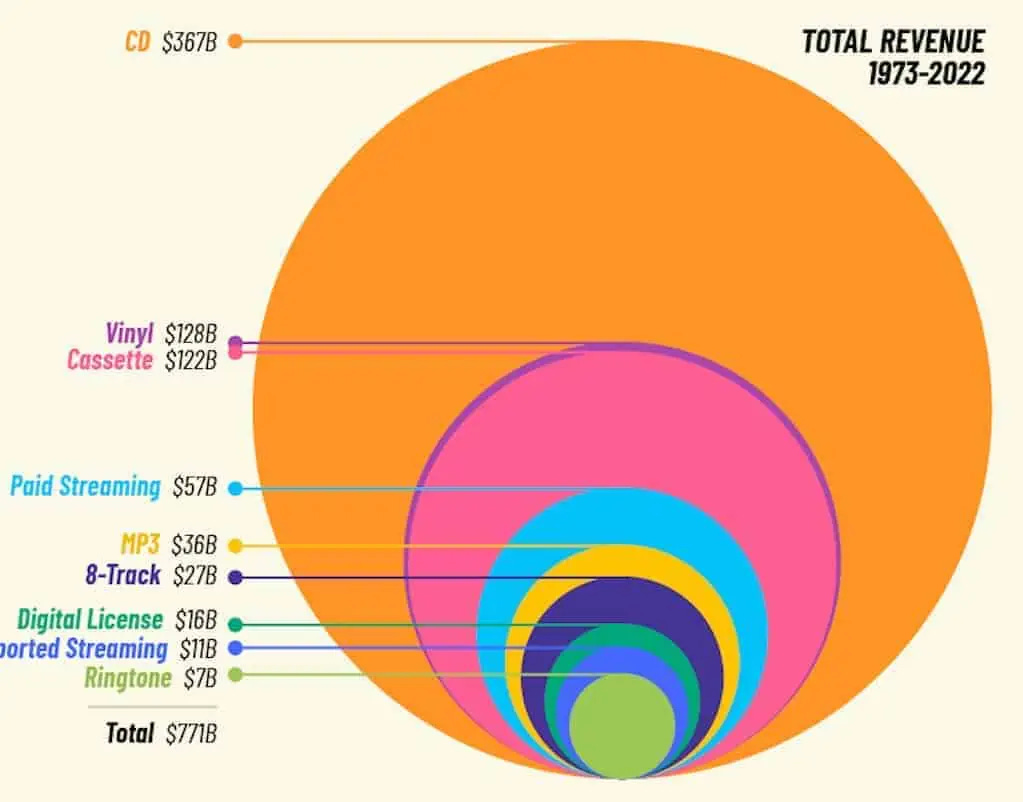This week, we had planned to release a fascinating Cadence Talks interview with one of the world’s greatest independent producers, S**** A*****. Then, we spent two full days in scenic Santa Monica at the Music Tectonics conference and ran out of time to prepare the video.
The good news is that we learned about some exciting new people and projects making big moves in the intersection of tech and music, which we’ll tell you about in the coming weeks. And our next Cadence Talk will be dropping next week, we promise.
In the meantime, here are several Takeaways, including a couple of news items that were the talk of MT.
TAKEAWAYS
Salient statements from this week’s music news.
1. Spotify is Embracing Elements of UMG’s ‘Artist-Centric’ Royalties Model
The Deezer deal was just the start of a UMG-led reshaping of the streaming landscape in a way that favors the biggest rightsholders.
Takeaway: It’s fair to assume that Universal, as the world’s biggest music rightsholder (a) bore at least some influence over Spotify’s newly-planned model and (b) broadly supports Spotify’s initiatives.

2. Hipgnosis Made Mega Deals for Song Catalogs. Its Future Is Unclear
After months of stock price drama, shareholders have given the once high-flying face of blockbuster catalog deals what amounts to a vote of no confidence.
Takeaway: The company’s board now has six months to introduce proposals for future plans, which “may or may not involve winding-up the company or liquidating all or part of the company’s existing portfolio of investments.”

3. Breaking Through Rock Journalism’s Boys’ Club
Following Jann Werner’s fantastic flameout, the music media is reassessing it’s diversity of voices.
Takeaway: Despite the narrow lens from which decades of music magazines were culled, women and BIPOC voices have been there, often behind the scenes, doing the work.
4. Deezer and Sacem to Explore ‘Artist-Centric’ Publishing Payouts
The announcement for songwriters is strikingly similar to Deezer's exploration with UMG mere months before revamping its recording royalty model.
Takeaway: There are no concrete changes in Deezer’s payouts for publishers and songwriters yet: instead, it will work with Sacem to “analyse streaming data and evaluate the viability of different economic models”.

5. Native Instruments: “We had to modernize our architecture…”
When the hardware/software giant makes an update, the ramifications can be felt across the entire music-making industry.
Takeaway: What’s striking about both these new controllers is the extent to which NI is creating a more immersive experience for users and performers where they spend less time looking at the computer screen, even though that’s where the majority of the actual processing is going on.

6. Bands Who Split Royalties Equally Are More Successful, Says Study
A review of 1,000 gold-selling acts from 1959-2021 found that more fortune was made when everyone got an even share.
Takeaway: The groups with equal splits tended to prosper more across their entire careers due to the lack of animosity caused by royalty disparities. Good examples include Coldplay, REM, Radiohead and The Doors, among others.

7. 50 Years of Music Industry Revenues: The Highs & Lows
When looking at gross revenue, today’s U.S. $57B streaming market can’t touch the $367B peak of the CD era.
Takeaway: The record labels of today are leaner and have higher margins, so, in fact, may be seeing bottom-line profits that are nearly equal to the glory days, although that’s much harder to calculate.





